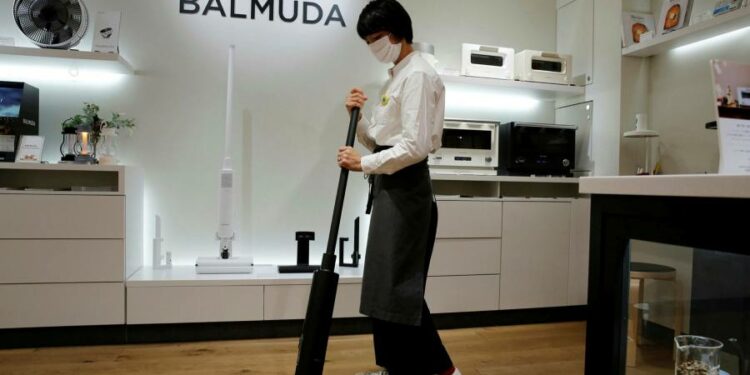Whether a tiny start-up, a giant conglomerate or an investor whose interests straddle tech and breakfast, the same killer question eventually arrives: should a company that manufactures a famously fabulous toaster also have a crack at building mobile phones?
Versions of this conundrum are staples of business school lectures. Tiffany & Co did well adding jewellery to its original line-up of stationery; Berkshire Hathaway looked smart bolstering textiles with insurance. We revere these stories when they work, and dismiss them as reckless when they fail.
Japan is an arch generator of such tales: many of its greatest corporate successes (Toyota, Nintendo, Yamaha) involve timely shifts of focus (from looms, playing cards and reed organs). But, like a gambling addict hearing the rattle of dice, the country also seems to have a specific thing about toasters and phones. “It must be possible for a company to make both at a globally competitive level”, mutter the voices in the corporate head, “and as a nation we will repeat the experiment until the outcome changes.”
The tenets of that faith grow more revealing every time it is tested. Hitachi, Toshiba, Mitsubishi, Panasonic and Sharp all, at one point, simultaneously made toasters and mobiles. All somehow remain in the toaster game, but have been forced by failure either completely or largely out of the global handset business.
The latest to try pulling the sword from the stone is Balmuda, a design-led Japanese company that listed its shares in Tokyo just over a year ago and came to market with a name built chiefly on its truly glorious toaster oven. It also sells a crack platoon of other minimalist household appliances and, by-the-by, an “adults only” curry sauce. Toaster-mania meant the shares soared 88 per cent on their first day of trading. The machine is beautiful, and its output appropriately toasty. But Balmuda’s The Toaster, assert those that have paid $225 to join its cultish army of fans, is no more a mere heater of bread than Balmuda’s The Pot is an electric kettle. These are examples of Japanese manufacturing perfectionism at its best; a nod to the triumph of marketing narrative.
And if there is one thing that Balmuda’s founder, Gen Terao, is superb at, it is building narrative: around himself (school dropout, former rock band member), his inspirations (lonely wanderings in Spain, Steve Jobs) and the products themselves (trial and error, tears). Last May the list was joined by a new yarn that Terao had long dreamt of making a mobile phone and would be doing so later in 2021.
The resultant device, designed by Balmuda and assembled for it by Japanese tech giant Kyocera, went on sale in November priced at Y104,800 ($919). This time, though, the patter and the pedigree were not enough. The phone was judged too plasticky, its processor weedier than the cost implied and its price tag unjustifiably higher than an iPhone 13 mini. Last week, sales of the phone were even suspended while Balmuda solved some software issues. The stock is now 64 per cent off its peak.
Balmuda has now joined some of Japan’s greatest industrial names in learning that the problem is that phones are unlike toasters in a way that is both obvious but also painful to grasp.
Both products can undoubtedly benefit from cutting-edge tech and design, but phones primarily require a cutting-edge mindset. Balmuda’s mis-step is thinking that because it is provably excellent at design — and modern phones owe a lot to design — it can fashion, on its first try, a phone desirable enough to command a price tag of $919. Toshiba, Panasonic and others have separately discovered that being very good at tech is no guarantee of success in this particular area of global consumer tech. In all cases, the stumbling block is the focus on the device rather than on the platform it channels and the experiences it delivers. Sony and Nintendo, whose games consoles are now heavily designed around their platforms, remain globally competitive thanks to that realisation.
For a brief moment, in the years before the iPhone reconfigured the way we thought about phones, Japan grasped all this. NTT DoCoMo’s i-mode was the mobile internet platform that carriers and handset makers around the world wanted to license or emulate. When the first iPhone emerged, and everyone became transfixed with its remarkable design, touchscreen and functions, Japanese handset makers, steeped in the old parameters of consumer tech, switched attention to that and allowed the infinitely more important focus — on software and platform design — to drift. The longer it then strained to build a brilliant toaster, the more it overlooked the importance of the bread.











